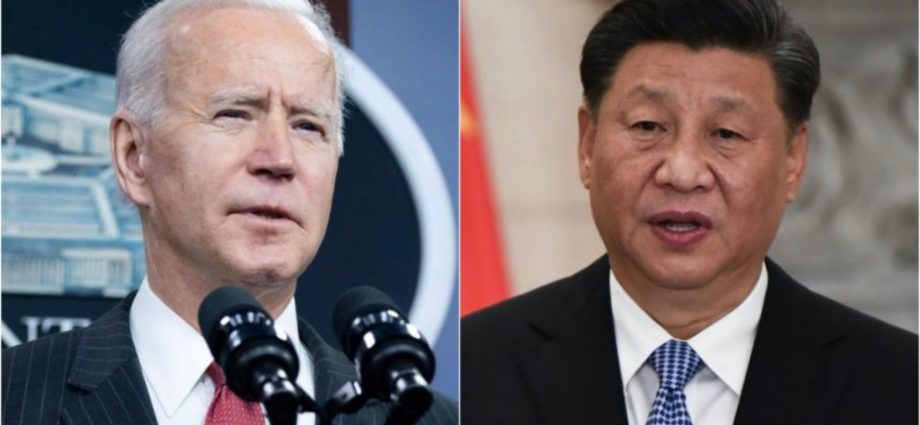China’s government will implement a series of measures to attract foreign companies to invest in high-end manufacturing in mainland China, a counter to US-led efforts to persuade firms and allied nations to “decouple” from China and its supply chains.
The National Development and Reform Commission (NDRC), the Ministry of Commerce, the Ministry of Industry and Information Technology (MIIT) and three other ministries on Tuesday suggested that foreign companies should be provided with sufficient land resources and a level playing field to develop their mainland businesses.
The call came as new Chinese leadership was formed after the week-long 20th National Congress of the Communist Party of China (CPC) ended last Saturday. The call was also made ahead of a global financial summit set to be held in Hong Kong on November 2.
The Hong Kong Monetary Authority (HKMA) said more than 200 international bankers and business leaders would attend the summit and that they would be exempted from some Covid rules during the three-day health monitoring period after their arrival.
Meanwhile, Ned Price, a spokesman of the United States Department of State, said on Monday the US would not change its stance toward China after CPC General Secretary Xi Jinping was given a third term.
Bloomberg reported that US officials are now trying to set up a meeting between US President Joe Biden and Xi.

On August 9 this year, Biden signed the CHIPS and Science Act to boost domestic semiconductor production and scientific research to enhance US competitiveness vis-a-vis China.
On October 7, the US Commerce Department’s Bureau of Industry and Security (BIS) unveiled a raft of new curbs to prevent China from accessing US chip and advanced chip-making technology. It also banned US citizens from working for Chinese semiconductor makers.
Many Chinese columnists have said that China should seek to strengthen economic ties with European countries to offset the negative impact of US supply chain restructuring. However, the European Chamber of Commerce last month said its members were losing confidence in China due to the tough anti-epidemic rules in the country.
Joerg Wuttke, president of the European Chamber of Commerce, said in a media briefing on September 20 that China should ease its Covid rules, deepen cooperation with the European Union and increase international flights.
Currently, international travelers are required to quarantine at hotels for seven days and are subject to three days of health monitoring after arriving in mainland China.
Earlier this year, China set up “express channels” for international visitors coming from 60 select countries to enter the country more easily but did not allow people to skip the “7+3” quarantine requirements.
The NDRC and five other government departments on Tuesday released a document that aims to boost foreign investment in mainland China. The document says China would increase its efforts to help mainland-based foreign companies solve their problems, improve services for them and use foreign funds to achieve high-quality economic development.
The document said government departments would strengthen their communications with foreign firms, foreign chambers of commerce and international organizations. It said China would set up express channels with more countries to ensure that foreign business people could visit the country more smoothly.
It also said China would encourage technological cooperation between Chinese and foreign firms and lead foreign investors to develop their businesses in the central, western and northeastern regions of the country.
On Monday, Eddie Yue, chief executive of the HKMA, said in an article that the Global Financial Leaders’ Investment Summit on November 2 would be extended by one day to include a new session dubbed “Conversations with Global Investors” on November 3.
“The Summit presents a good opportunity for our guests to learn more about where Hong Kong is headed, our vision for the city and the steps we will take to realize that vision, and the opportunities that we offer to global businesses and talent,” Yue said.
He said global business leaders would be allowed to have meals with others in private rooms and visit certain venues that require active checking during the first three days of medical surveillance after arriving in Hong Kong.

On September 26, Hong Kong adopted a so-called “0+3” arrangement whereby incoming travelers no longer need to stay in quarantine hotels but are required to avoid gatherings or going to high-risk premises in the first three days after their arrival.
In the first eight months of this year, China’s foreign direct investment (FDI) increased 20.2% to 138.4 billion yuan from the same period of last year, according to the Ministry of Commerce. Foreign investments rose 43.1% in the high-end manufacturing sector and 31% in the high-end service industries.
Most foreign investments entered mainland China through Hong Kong, according to 2019 figures announced by the Commerce Ministry.
For the full year of 2019, mainland China’s FDI from Hong Kong amounted to US$96.3 billion, compared with a combined US$39.9 billion from nine other places. Since then, the Ministry of Commerce has only provided its FDI figures by the original sources of the foreign funds.
Shu Yuting, spokesperson of the Ministry of Commerce, said on September 22 that the investments of European firms in China surged 123.7% year-on-year during the first eight months of this year.
Shu said the figures showed that foreign investors remained optimistic about China’s markets and potential.
While Hong Kong welcomes international business leaders next week, some US lawmakers have criticized American corporate executives who have agreed to attend the city’s financial summit.
US congressman Chris Smith and two other Republicans said on October 5 that US companies would attract more scrutiny if their executives had more engagement with Hong Kong authorities and officials who were sanctioned by the US Treasury, according to a Politico report.
Read: Party Congress drives HK stocks to 13-year low
Follow Jeff Pao on Twitter at @jeffpao3

